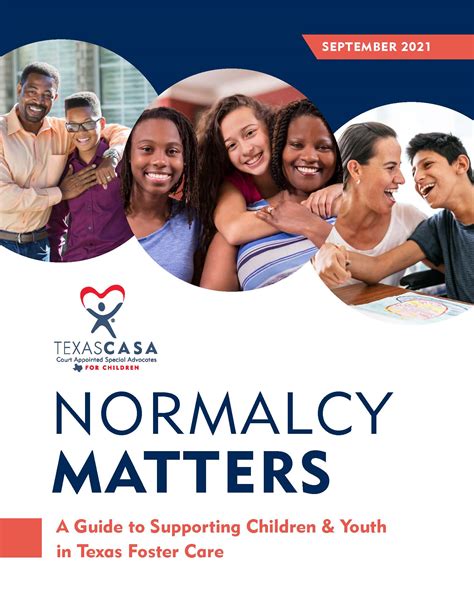Answering Your Questions About Foster Care in Texas
Texas' foster care system is a complex network designed to provide temporary care for children who can no longer safely remain in their birth homes. Understanding how it works, who it serves, and what the process entails can be overwhelming. This comprehensive guide aims to answer your frequently asked questions about foster care in Texas, offering clarity and information to those considering becoming foster parents, working with the system, or simply wanting to learn more.
What is Foster Care in Texas?
Foster care is a temporary arrangement where children are placed in the care of licensed foster families when their biological parents are unable to provide a safe and stable environment. These children are under the legal supervision of the Texas Department of Family and Protective Services (DFPS). The goal of foster care is always reunification with the biological family whenever it's safe and possible. If reunification isn't achievable, the DFPS works towards other permanent solutions like adoption or guardianship.
Who are the Children in Texas Foster Care?
Children enter the foster care system for a variety of reasons, including:
- Neglect: This is the most common reason. It can range from lack of adequate food, clothing, or shelter to medical neglect and failure to provide proper supervision.
- Abuse: Physical, emotional, or sexual abuse leads to children being removed from dangerous situations to ensure their safety and well-being.
- Abandonment: When parents leave their children without providing for their basic needs.
- Parental Substance Abuse: Drug or alcohol addiction often impairs parents' ability to care for their children.
How Does the Foster Care Process Work in Texas?
The process involves several key steps:
- Report of Child Abuse or Neglect: Someone reports suspected abuse or neglect to Child Protective Services (CPS). This can be a family member, teacher, doctor, or anyone who suspects a child is in danger.
- CPS Investigation: CPS investigates the report to determine if the allegations are true and whether the child is at risk.
- Removal from Home: If the investigation confirms the child is in danger, CPS may remove the child from the home and place them in temporary foster care.
- Court Involvement: The case goes to court, where a judge determines the best interests of the child and develops a case plan.
- Case Plan Development: This plan outlines the steps necessary to reunify the child with their family, or to find a permanent home if reunification isn't possible.
- Foster Care Placement: The child is placed with a licensed foster family, a relative, or in a group home or residential treatment center depending on their needs.
- Court Review Hearings: The case is reviewed periodically in court to assess progress and ensure the child's needs are being met.
What are the Requirements to Become a Foster Parent in Texas?
The requirements to become a foster parent in Texas include:
- Home Study: A thorough assessment of your home, finances, and suitability to care for children.
- Background Checks: Extensive criminal and child abuse background checks are required for all adults in the household.
- Training: You will need to complete a state-mandated training course covering topics like child development, trauma-informed care, and legal aspects of foster care.
- Home Inspection: Your home must meet safety standards and have enough space to accommodate the children.
- Licensing: Once all requirements are met, you will receive a license to become a foster parent.
What Support is Available for Foster Parents in Texas?
Texas offers several support systems for foster parents:
- Financial Assistance: Foster parents receive financial reimbursement to help cover the cost of caring for the children.
- Respite Care: Temporary relief for foster parents to prevent burnout.
- Therapeutic Services: Access to therapists and counselors specializing in trauma and child development.
- Support Groups: Connecting with other foster parents to share experiences and provide mutual support.
How Can I Get Involved in Texas Foster Care?
You can get involved in several ways:
- Become a Foster Parent: Provide a safe and loving home for children in need.
- Become a Volunteer: Offer support to foster families and children through mentoring, tutoring, or other activities.
- Donate: Financial donations help support programs and services for children and families.
What Happens After a Child Leaves Foster Care?
When a child ages out of foster care (typically at 18), they may face challenges transitioning to independent living. Texas offers services and support to help these young adults, including:
- Extended Foster Care: For some youth, there is an option to remain in foster care until age 21.
- Educational and Vocational Support: Assistance with college, job training, and finding employment.
- Housing Assistance: Help in finding and securing affordable housing.
This overview provides a foundational understanding of foster care in Texas. Remember to visit the Texas Department of Family and Protective Services website for the most up-to-date information and resources. The journey of foster care is complex, but the dedication and compassion of individuals involved make a profound difference in the lives of children.

